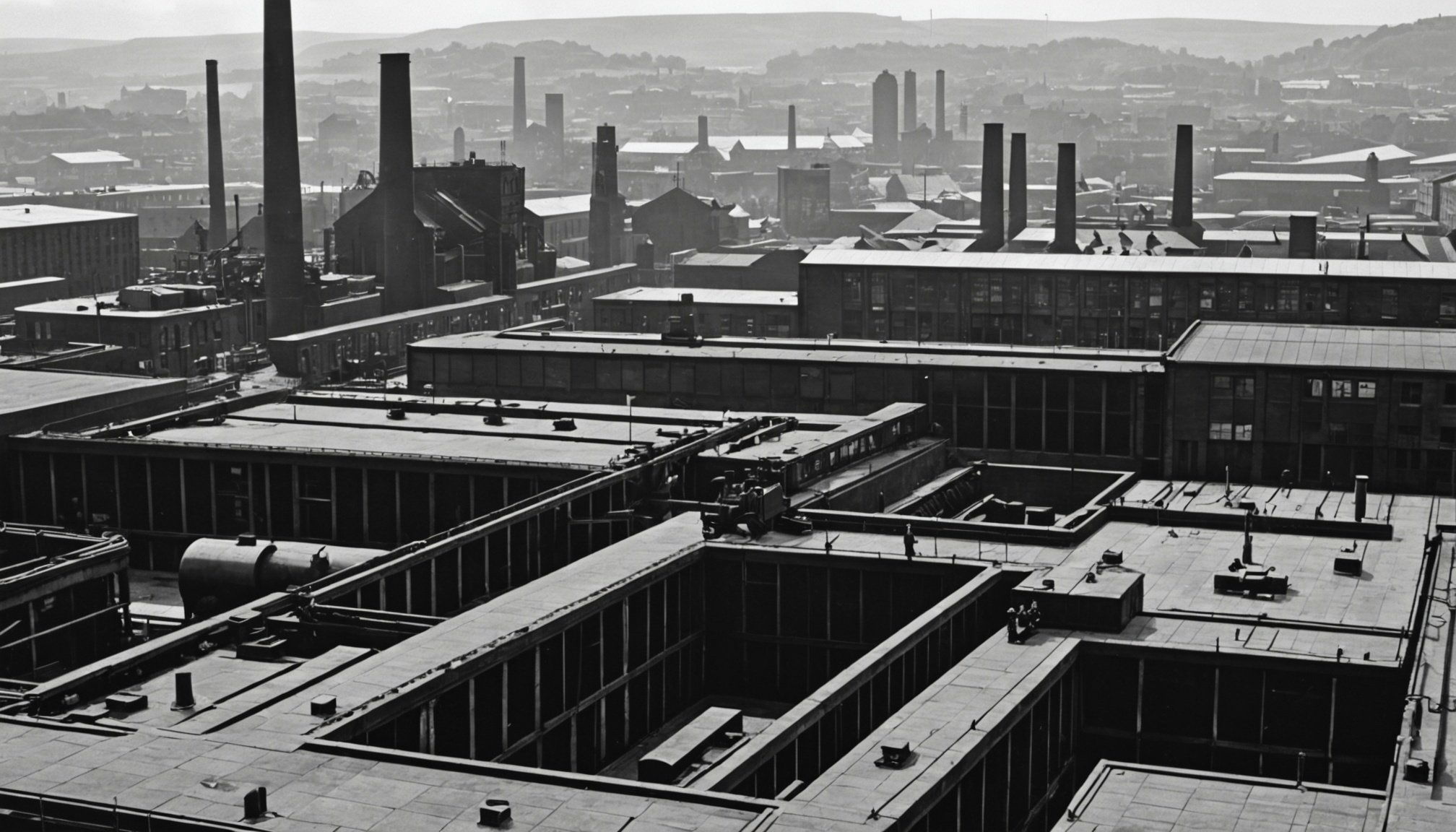Unveiling Sheffield’s Steel Heritage: Essential Tips for Exploring Britain’s Rich Industrial Legacy
Sheffield, a city nestled in the heart of South Yorkshire, England, is a treasure trove of industrial history, particularly renowned for its significant contributions to the steel industry. This article will guide you through the essential sites, tips, and experiences that will help you uncover and appreciate Sheffield’s steel heritage.
Understanding Sheffield’s Industrial Past
Sheffield’s journey to becoming a steel powerhouse is a fascinating story that spans centuries. The city’s strategic location at the foot of the Pennine highlands, where four streams converge to form the River Don, made it an ideal place for early industrial activities. From medieval times, local iron ore was smelted with charcoal from nearby woodlands, and smiths and cutlers utilized the excellent local sandstone for grindstones[1].
This might interest you : Uncover top strategies for booking guided tours of iconic literary landmarks in the lake district
Key Innovations in Steel Production
Several metallurgical innovations propelled Sheffield to the forefront of the steel industry. In the early 1740s, Benjamin Huntsman developed the crucible process of steelmaking, which led to the production of reliable tool steel. By 1830, Sheffield had earned recognition as the world center of high-grade steel manufacture. Thomas Boulsover’s discovery of the process of plating copper with silver by fusion in about 1742 further solidified Sheffield’s position. Henry Bessemer’s method of making inexpensive steel in large quantities, first tested in Sheffield in 1856, significantly expanded the city’s heavy steel industries. The process for making stainless steel also originated in Sheffield around 1912[1].
Must-Visit Sites for Industrial Heritage
To truly experience Sheffield’s steel heritage, you need to visit some of the city’s most iconic sites.
Also read : Ultimate guide to photographing breathtaking wildlife in national parks across the uk
Kelham Island Museum
Located on Kelham Island in the city center, Kelham Island Museum is a striking Victorian landmark that stands as a testament to Sheffield’s industrial revolution. This museum showcases the city’s steel-making past and features original Victorian industrial features, including the most powerful working steam engine in Europe. Visitors can explore exhibitions and galleries, and the museum is also a popular venue for weddings and events, offering a unique and quirky space[2][4].
Key Features of Kelham Island Museum:
- Industrial Exhibits: Detailed displays on Sheffield’s steel industry and its innovations.
- Victorian Architecture: Original features such as high ceilings, large windows, and Victorian tiles.
- Interactive Options: Engaging exhibits for children and adults alike.
- Wedding Venue: Licensed for civil ceremonies and receptions, offering a unique backdrop for special events.
Weston Park Museum
Another significant museum in Sheffield is the Weston Park Museum, which houses an impressive collection of art, archaeological artifacts, and social history. This museum provides a broader context to Sheffield’s history, including its industrial past, and is a must-visit for anyone interested in the city’s heritage[3].
Key Features of Weston Park Museum:
- Diverse Collections: Art, archaeology, and social history exhibits.
- Interactive Displays: Engaging exhibits that cater to all ages.
- Local History: Detailed insights into Sheffield’s history and development.
Abbeydale Industrial Hamlet
The Abbeydale Industrial Hamlet is a preserved 18th-century industrial site that showcases the early stages of Sheffield’s industrial development. Here, you can see historic workshops and machinery, giving you a glimpse into the lives of the people who worked in these industries[5].
Key Features of Abbeydale Industrial Hamlet:
- Historic Workshops: Preserved workshops from the 18th century.
- Machinery and Tools: Original machinery and tools used in early industrial processes.
- Guided Tours: Available to provide deeper insights into the site’s history.
Exploring Sheffield’s Parks and Green Spaces
Sheffield is often referred to as the “greenest industrial city in the UK,” thanks to its numerous parks and green spaces. These areas not only provide a tranquil escape from the city’s industrial heritage but also offer a glimpse into the city’s natural beauty.
Botanical Gardens
The Sheffield Botanical Gardens are home to over 5,000 species of plants, creating a colorful tapestry that is a delight to explore. These gardens are a perfect place to relax and appreciate the natural side of Sheffield[3].
Key Features of Botanical Gardens:
- Diverse Plant Species: Over 5,000 species of plants.
- Scenic Walks: Beautiful paths and gardens to stroll through.
- Events and Workshops: Various events and workshops are held here throughout the year.
Peace Gardens
Located in the heart of the city, the Peace Gardens offer a serene escape from the hustle and bustle of urban life. This tranquil space is ideal for a quiet afternoon or a family outing[3].
Key Features of Peace Gardens:
- Tranquil Atmosphere: A peaceful oasis in the city center.
- Family-Friendly: Suitable for families with children.
- Community Events: Hosts various community events and activities.
Practical Tips for Exploring Sheffield
To make the most of your visit to Sheffield, here are some practical tips and insights:
Guided Tours
Sheffield offers various guided tours that can help you delve deeper into the city’s industrial heritage. These tours often include visits to key sites like Kelham Island Museum and Abbeydale Industrial Hamlet. Guided tours provide valuable context and insights that might be missed on a self-guided visit[5].
Local Insights
Engaging with local people can provide unique perspectives on Sheffield’s history and culture. Visit local cafes, pubs, and markets to hear stories from the people who live and work in the city. The Millowners Arms at Kelham Island is a great place to relax and hear local tales[2].
Rental and Accommodation
Sheffield offers a range of accommodation options, from budget-friendly rentals to luxury hotels. For those interested in staying close to the city center, consider renting a house or apartment in areas like Kelham Island or Ecclesall Road. These locations provide easy access to many of the city’s industrial heritage sites[5].
Table: Comparing Key Industrial Heritage Sites in Sheffield
| Site | Key Features | Admission Price | Opening Hours |
|---|---|---|---|
| Kelham Island Museum | Industrial exhibits, Victorian architecture, steam engine | £6-£8 | 10:00 AM – 4:00 PM |
| Weston Park Museum | Art, archaeology, social history exhibits | Free | 10:00 AM – 5:00 PM |
| Abbeydale Industrial Hamlet | Historic workshops, machinery and tools | £4-£6 | 10:00 AM – 4:00 PM |
| Botanical Gardens | Over 5,000 plant species, scenic walks | Free | 8:00 AM – 7:30 PM |
| Peace Gardens | Tranquil atmosphere, community events | Free | Open 24/7 |
Quotes and Anecdotes
- “Sheffield is a city that wears its heart on its sleeve. Its industrial heritage is not just a part of its past but a living, breathing part of its present.” – Local Historian
- “Visiting Kelham Island Museum was like stepping back in time. The steam engine and the Victorian architecture really brought the history to life.” – Visitor Review
- “The people of Sheffield are incredibly proud of their city’s history. Talking to locals and hearing their stories added a whole new layer to our visit.” – Tourist
Sheffield’s steel heritage is a rich and complex tapestry that is woven into every aspect of the city. From its innovative past in steel production to its current status as a vibrant cultural hub, Sheffield offers a unique and engaging experience for anyone interested in industrial history.
Whether you are exploring the industrial hamlets, visiting museums, or strolling through the city’s beautiful parks, Sheffield has something to offer everyone. By following these tips and visiting these essential sites, you will gain a deeper appreciation for the city’s steel legacy and the people who have shaped it over the centuries.
So, come and discover Sheffield – a city where the past and present blend seamlessly, and where the spirit of innovation and industry continues to thrive.










